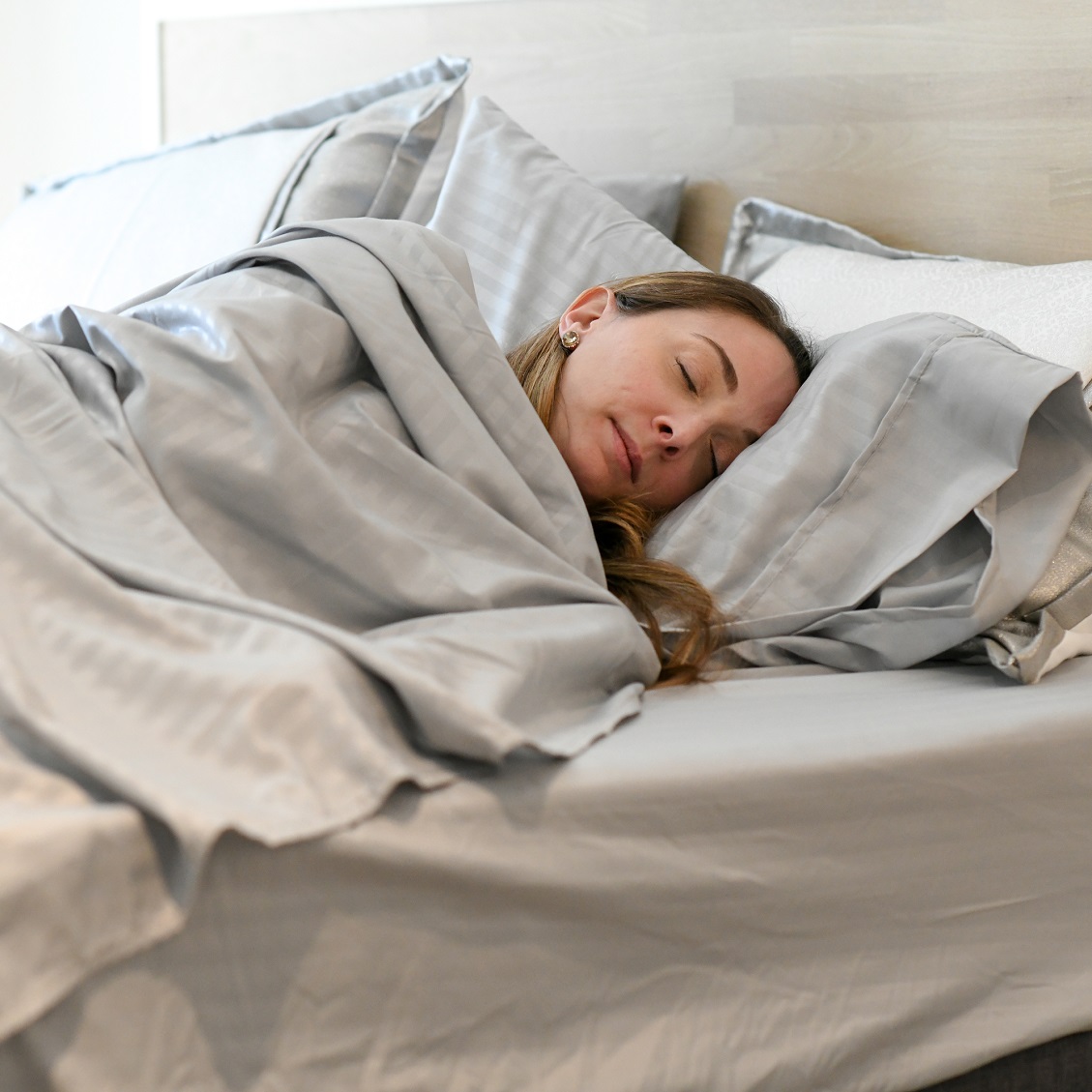Is Napping Bad For You

October 03, 2022
You may love to nap, but a recent study suggests that your heart doesn’t. The study published in the American Heart Association’s AHA Journals shows that poor sleep patterns, such as not getting the right amount of sleep or napping during the day, may increase your risk of high blood pressure and stroke.
You are more at risk for cardiovascular diseases if you have the following poor sleep patterns or behaviors:
- Sleeping for too little or too much time at night (less than seven hours or more than ten hours)
- Staying up late, often known as being a “night owl”
- Frequent or chronic insomnia
- Heavy snoring habits
- Regularly feeling sleepy during the daytime
How long should I be sleeping for?
Shortened periods of sleeping and irregular sleep patterns can be bad for your health. Depending on your age, there are different recommended periods of sleep that should be maintained for optimal health. According to the CDC, the hours of sleep for each age group are:
- Newborns, zero to three months old: 14 to 17 hours
- Infants, four to 12 months old: 12 to 16 hours
- Toddlers, one to two years old: 11 to 14 hours
- Preschoolers, three to five years old: 10 to 13 hours
- School Age, six to 12 years old: 9 to 12 hours
- Teens, 13 to 18 years old: 8 to 10 hours
- Adults
- 18 to 60 years old: 7+ hours
- 61 to 64 years old: 7 to 9 hours
- 65 and over: 7 to 8 hours
How can I improve my sleep for my health?
“Sleep hygiene has been proven to play an important role in your overall health,” says sleep medicine expert, Stacey Elkhatib Smidt, M.D. “Having a consistent schedule when you go to sleep and wake up is crucial, and this routine will help you sleep better overall. A lack of sleep can lead to risks like high blood pressure, diabetes and stroke.”
If your hours of sleep are out of range for your age group, here are some practices noted by the CDC that you can try in order to establish a better sleep routine and schedule:
- Get some exercise. Physical activities throughout the day can make it easier to fall asleep at night and have a more fulfilling rest.
- Avoid drinking alcohol or caffeine before bedtime. Having these too late in the day can make it harder to fall asleep.
- Stop using electronic devices. The lights, notifications and temptations from your TV, phone or computer can be distracting when trying to sleep.
- Try to create a routine. Going to sleep at the same time every night and getting up at the same time in the morning can help to ensure you get enough sleep.
- Improve your sleep environment. Your bedroom should be dark and quiet so that you can fall asleep peacefully and comfortably.
“Improving your sleep habits is a crucial part of your health. You are more likely to be at risk for cardiovascular diseases such as coronary heart disease and stroke when your sleep is too little or too much,” says Brett Sealove, M.D., chief of Cardiology at Jersey Shore University Medical Center.
Naps take up short periods of your overall sleep time over the course of the day. Daytime sleeping can cause you to have an irregular sleep pattern, which can negatively impact your cardiovascular health over time.
Next Steps & Resources:
- Our sources: Brett Sealove, M.D., FACC, RPVI and Stacey Elkhatib Smidt, M.D., M.S.T.R.
- To make an appointment with a health care provider near you, call 800-822-8905 or visit our website.
The material provided through HealthU is intended to be used as general information only and should not replace the advice of your physician. Always consult your physician for individual care.
Find a doctor near me

Is Sleep Affecting Your Mental Health?
Do you feel cranky if you stay up too late and wake up early? One night may sour your mood but chronic sleep loss may contribute to mental-health disorders.

Sweaty Sleeper? Find Out Why
Sweaty Sleeper? Learn why night sweats occur and when to seek help from a doctor like Dr. Elkhatib Smidt. Find relief and improved sleep. Call 800-822-8905.
Find a doctor near me

Four Doctors Share Their Sleep Habits
Doctors share their sleep habits. Learn how much sleep you need for better health. Find a doctor near you. Call 800-822-8905.

4 Reasons You Might Be Tired Often
Feeling tired often? Learn four possible reasons for chronic fatigue from Dr. Baird. Discover tips for better sleep and find a doctor today. Call 800-822-8905.

Is Magnesium Good For Relaxation & Sleep?
Improve sleep and relaxation with magnesium. Dr. Leopold explains magnesium's benefits and how to incorporate it into your diet. Learn more & schedule an appointment.

When Snoring Is a Sign of a Health Problem
Snoring may signal sleep apnea. Learn about causes, symptoms, and treatments from Dr. Ngai. Get help for better sleep. Call 800-822-8905.
